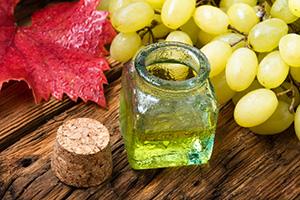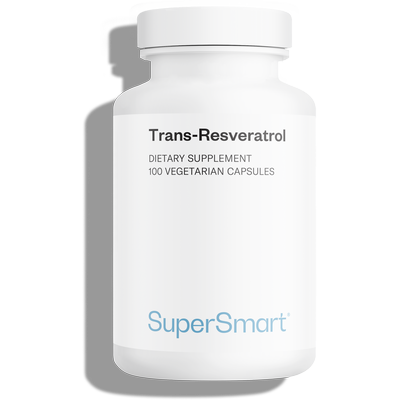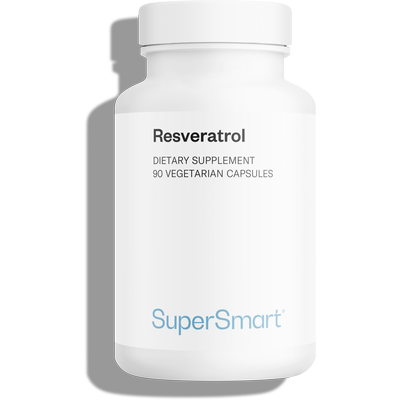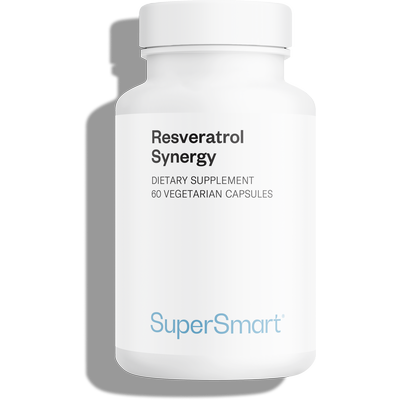21-08-2019
Resveratrol: astonishing new study confirms its ‘enormous potential’ against ageing
 Researchers at Exeter University have succeeded in rejuvenating senescent cells in the laboratory 1 using a molecule already known for its effects on longevity: resveratrol.
Researchers at Exeter University have succeeded in rejuvenating senescent cells in the laboratory 1 using a molecule already known for its effects on longevity: resveratrol. The scientists found that after just a few hours’ treatment with resveratrol analogues, older cells started to divide again and behave like young cells. This natural compound had been shown in previous studies 2 to restore a group of proteins known as splicing factors that switch off with age. These are responsible for an important stage in the production of proteins, the splicing of RNA strands, in which copies of genetic information are processed ready to be turned into proteins. Age-related deterioration of splicing factors means that the whole mechanism of protein production breaks down. A decrease in splicing factors is seen in the senescent cells found in most organs from older people. br>
Initially surprised by their observations, the researchers realised this was no mistake: restoring the splicing factors resulted in the rejuvenation of the whole cell. The senescent cells regained the resources necessary to restore their ability to perform functions such as cell division and adaptation to their environment. What’s more, the effect was sustained over time! “When I saw these cells rejuvenating I couldn't believe my eyes. It was like magic”, commented researcher Dr Eva Latorre. . "I repeated the experiments several times and in each case the cells rejuvenated.”
This discovery confirms the benefits of resveratrol for fighting the ageing process, and represents a major step towards the development of a universal treatment for preventing and treating age-related degenerative disease. Professor Lorna Harries, who led the research team, said: ”This is a first step in trying to make people live normal lifespans, but with health for their entire life” . This goal remains some distance away: worryingly, there seems to be an inexorable rise in the incidence of chronic degenerative diseases such as arthritis, Parkinson’s, Alzheimer’s, diabetes and myopathy.
So how can you benefit from resveratrol right now?
Resveratrol is a polyphenol present in fruits such as grapes and blackberries, and in the roots of Japanese knotweed (Hu Zhang), a plant used in traditional Chinese medicine, considered to be the richest source3. It is found in both cis-and trans- configurations but it is the latter form which is more active in humans4.
Always ‘one step ahead of the game’, SuperSmart has actually offered this molecule for some years. Previous studies had already demonstrated the extent of resveratrol’s benefits against ageing, inflammation and the development of a number of age-related diseases, without identifying the mechanisms responsible5,6,7. The benefits of this extraordinary substance are thus already available in the form of three different supplements: - A trans-resveratrol supplement, extracted from Hu Zhang root: Trans-Resveratrol 100 mg. - A resveratrol supplement, 80% extracted from organic red grapes and 20% from Japanese knotweed: Resveratrol 20 mg. - A synergistic supplement containing transresveratrol, plus many more of the most powerful known antioxidants: Resveratrol Synergy
References :
1- Latorre E, Birar Vishal C. et al. Small molecule modulation of splicing factor expression is associated with rescue from cellular senescence, BMC Cell Biology, 2017;18:31, https://doi.org/10.1186/s12860-017-0147-7
2- Markus MA, Marques FZ, Morris BJ. Resveratrol, by modulating RNA processing factor levels, can influence the alternative splicing of pre-mRNAs. PLoS One. 2011;6:e28926.
3- Pervaiz S. Resveratrol: from grapevines to mammalian biology. FASEB J 2003;17:1975-85
4- Soleas GJ, Diamandis EP, Goldberg DM. Resveratrol: a molecule whose time has come? And gone? Clin Biochem 1997;30:91-113.
5- Baur JA, Pearson KJ, Price NL, et al. Resveratrol improves health and survival of mice on a high-calorie diet. Nature 2006;444:337-42.
6- Bujanda L, Garcia-Barcina M, Gutierrez-de Juan V, et al. Effect of resveratrol on alcohol-induced mortality and liver lesions in mice. BMC Gastroenterol 2006;6:35.
7- Elmali N, Baysal O, Harma A, et al. Effects of resveratrol in inflammatory arthritis. Inflammation 2007;30:1-6.
Order the nutrients mentioned in this article

Standardised extract of Polygonum cuspidatum
The high dose recommended in many studies

The most effective and best-researched phytonutrient for maintaining and protecting health
www.supersmart.com
Improves biomarkers of aging and promotes expression of longevity genes
www.supersmart.comFurther reading
25-07-2016
Research into human longevity has taken a historic step forward.Though unknown to Western media, Russian researchers have developed a substance capable of extending lifespan by...
Read more21-08-2019
The fight against ageing continues. Researchers working for a start-up biotech company have discovered the beneficial effects of urolithin A 1 , a substance produced...
Read more02-08-2016
The first anti-aging nutritional supplement to boost and generate new mitochondria, and so ensure the longevity of all the body’s cells. What are mitochondria ?...
Read more© 1997-2026 Fondation pour le Libre Choix
All rights reserved
All rights reserved
Free
Thank you for visiting our site. Before you go
REGISTER WITHClub SuperSmart
And take advantage
of exclusive benefits:
of exclusive benefits:
- Free: our weekly science-based newsletter "Nutranews"
- Special offers for club members only

















